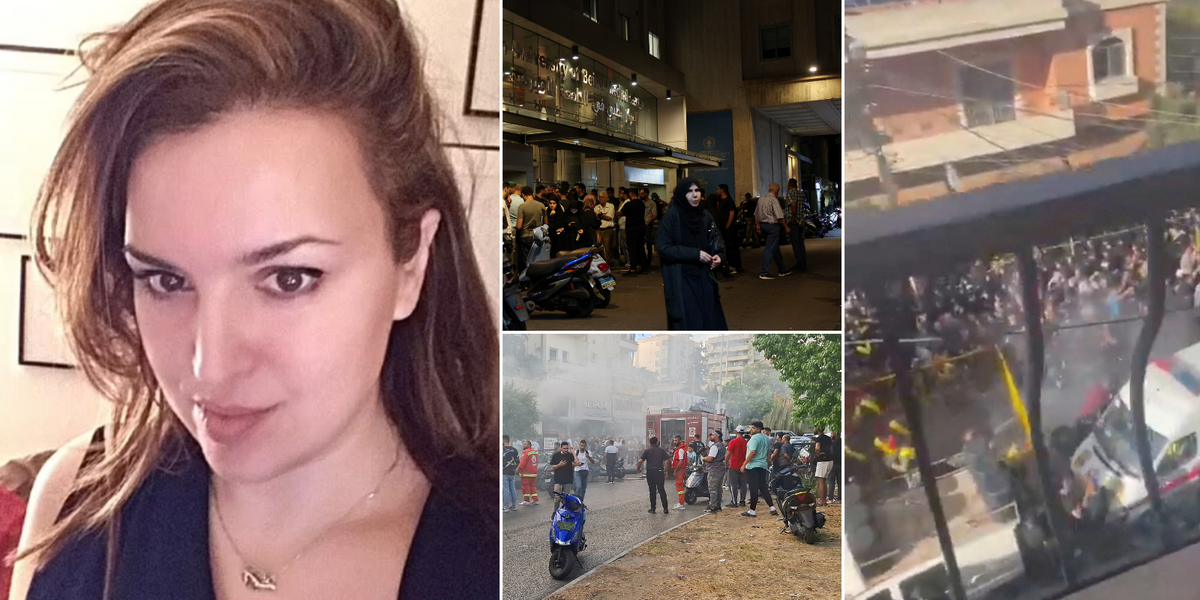A British-educated entrepreneur has denied manufacturing the pagers that exploded in Lebanon.
The devices, used by Hezbollah members, wounded more than 3,000 people and killed at least 12 in a suspected Israeli operation.
Taiwan-based Gold Apollo, whose branding appeared on the devices, said it did not manufacture the devices used in the attack, and that they were made by a Hungarian company which has a licence to use its brand.
A spokesperson from Gold Apollo said “the design and manufacturing of the products are solely the responsibility” of Budapest-based BAC Consulting KFT, which was authorised to use its brand as part of a three-year-old licensing agreement.
Chairman Hsu Ching-kuang said: “We may not be a large company but we are a responsible one…This is very embarrassing,” adding that he planned to sue BAC as he was not aware that the devices could explode.
Cristiana Bársony-Arcidiacono, the Hungarian company’s chief executive, has said that her firm was just a link in the supply chain and did not manufacture the pagers used in the attack.
“I do not make the pagers. I am just the intermediary. I think you got it wrong,” she told NBC News.
Bársony-Arcidiacono, who boasts qualifications from several London universities, is listed as the company’s sole managing director.
LATEST DEVELOPMENTS:
After studying at University College London (UCL), School of Oriental and African Studies (SOAS), and London School of Economics (LSE), the Hungarian woman worked with the European Commission as an “evaluation expert” and as a “groundwater resource manager” for Unesco.
Her LinkedIn page states she enjoys “working in a multicultural environment where Passion, Integrity, and…humour are valued!”
On the company’s website, which went offline on Wednesday morning, her work was described as “bridging technology and innovation from Asia”.
Ching-kuang from Gold Apollo said that he negotiated the licensing agreement in Europe – which they had for the past three years – with a Taiwanese woman whom he believed was a regional representative of BAC.
“She had already flown several times to Europe,” he said. “From beginning to end, they never mentioned Lebanon.”
Mourners gather at the funeral of Hezbollah members Fadel Abbas Bazzi and Ahmad Ali Hassan
Reuters
Following the detonation of the pagers, a series of walkie-talkies exploded in the region, killing 20 people and injuring at least 450.
The Lebanese Red Cross said it was responding to “multiple explosions in different areas” and remained on high alert.
Israel has not commented on the incidents, though both Lebanese and US sources have placed the blame on Mossad – a spy agency.
Yoav Gallant, the Israeli Defence Minister, instead said that the “centre of the gravity” of the fighting was shifting towards the northern border, where Hezbollah and Israel have regularly exchanged rocket fire.

